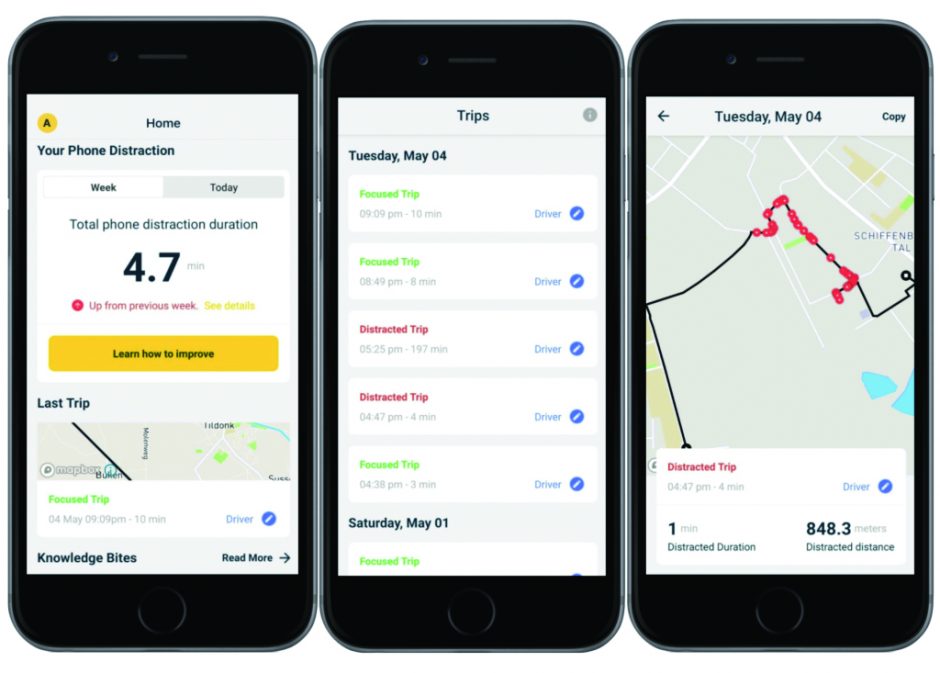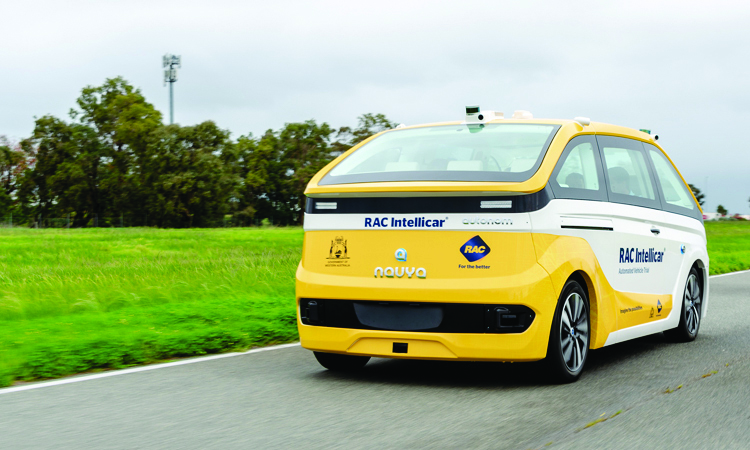Australian insurance mutual RAC WA has been working with tech companies to develop a range of new products for its members, including a new app to discourage mobile phone use while driving.
The 115-year-old insurer – the Royal Automobile Club for Western Australia, a member of Icmif – has more than a million members which makes it a useful testing ground for new tech. The latest initiative is a trial of the Safer Driver app, developed by data science company Sentiance.
Sentiance is “an intelligence-driven data science and behaviour-change company” which uses motion data to develop “contextual insights and use behavioural change techniques to personalise engagement for safer and sustainable mobility”.
Its app can detect when participants use their phones while driving, which RAC WA says is a growing road safety concern. It says that last year alone, 30 people were killed and 61 people were seriously injured in inattention-related crashes on Western Australian (WA) roads.
Will Golsby, RAC general manager, external relations, said: “Whether it’s sending a text, making a call or changing a song, anything that takes your attention off the road environment is putting yourself and others at risk.”
Research from Sentiance found that seven in 10 Western Australians consider mobile phone related distraction to be a leading contributor to deaths and serious injuries on the state’s roads. Drivers are four times more likely to have a crash that sends them to a hospital if they use their phone at the wheel. The state of WA has one of Australia’s worst road safety records, and according to an RAC survey in 2018, four in five admit to using their phone while in control of a vehicle at least some of the time.
Sentiance points out the obvious danger: “Just a two-second glance away from the road at 60km/h and a driver is effectively driving blind for 33 metres.”
The interactive 30-day trial, which ran in 2021 with more than 800 people taking part, reduced calling, texting and swiping, says RAC WA.
The app allows drivers to interact with different challenges, read advice and monitor and adapt their own driving behaviour.
The trial included an intervention group that received coaching, and a control group that did not. A dashboard helped drivers compare their habits throughout the trial. Participants also received coaching and challenges before and after their trips – they were not sent any material or interaction by the app whilst driving.

Golsby said the app has had a significant impact on driver behaviour. “The app technology recorded when participants touched their phones while driving,” he added, “with the vast majority who received coaching reducing this dangerous habit. Half reduced their distraction by at least 60%.”
The trial found that 75% of participants accepted at least one focused driving challenge, with more than 1,700 challenges accepted over the course of the trial.
And 60% of respondents to a post-trial survey said the app helped them understand the risks and form better habits.
RAC WA adds: “The success of the trial clearly shows the significant role technology plays in road safety, and how one of the major causes of driver distraction, could also be part of the solution.”
It’s not the first venture into new tech for the mutual, which has been working to develop driverless electric vehicles, notably with the introduction in 2016 of its prototype Intellibus to the city of Perth, followed two years later by the Intellicar – a project supported by the Western Australian government and vehicle manufacturer NAVYA.

Intellibus is now Australia’s longest running automated vehicle trial, which has run in South Perth, Busselton and Geraldton. It allows passengers to “see how the driverless bus interacts with other road users, while learning how this technology could be integrated into our transport network for a safer, more sustainable and better-connected future”.
It runs a 3.5km route taking in some of South Perth’s oldest landmarks along its foreshore.
Intellicar is a shared vehicle, available to users on demand. At its launch, RAC group CEO, Terry Agnew, said: “How we move around is rapidly evolving and being able to test emerging vehicle technologies right here in Western Australia will help us adapt to these changes in the safest way possible.
“Human error is the cause of the vast majority of road deaths and serious injuries, so if we can help Western Australia and Australia safely transition to driverless vehicles sooner, hundreds of Australian lives could be saved.
“Over coming years, vehicle automation will become more prolific within our transport network, which is why it’s critical we conduct trials like these to better understand the potential impacts and opportunities.
“Providing a way for our members and the community to get involved is central to our trials, and the feedback we’ve gathered from participants has been very insightful.”
He added: “Having a robust understanding of the technology and what it means for Western Australia will help develop a roadmap for the safe transition to our driverless future.”
Tech changes also apply to RAC WA’s own operations, with its switch last year to Microsoft Azure as its preferred cloud, which gives it “a consolidated, 360-degree view” of customer information – and helped it maintain operations during the pandemic.
Lee Hickin, national technology officer at Microsoft Australia said: “By embracing the cloud, RAC WA has created a modern flexible workplace which has stood it in great stead through the pandemic when people were able to work remotely if required. By building the digital capability of its workforce, RAC WA also signals how much it values its people and recognises the importance of a grassroots led innovation culture.”
Mark Weller, chief operating officer at RAC WA, added: “Our interactions with members are really critical … We want to have a complete and enhanced view of our members to ensure we can provide them with the best possible service.”